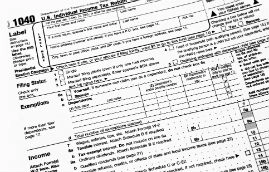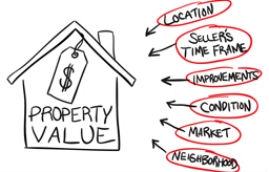A conventional fixed rate mortgage is a loan product featuring a fixed interest rate for the entire term of the loan. Monthly mortgage payments remain the same for the life of your loan. A fixed rate mortgage may be right for you, if you:
- Prefer easy budgeting and long-term planning.
- If want to lock in a favorable rate for the long term.
- Prefer predictable financing for an investment property.
- Don't plan to relocate, refinance or move in the next few years.
- Don't expect a significant increase in income in the next few years.
A 15-year fixed rate mortgage gives you the ability to own your home free and clear in 15 years. And, while the monthly payments are somewhat higher than a 30-year loan, the interest rate on the 15-year mortgage is usually a little lower, and more importantly, you pay less than half the total interest cost of the traditional 30-year mortgage.
However, if you can't afford the higher monthly payment of a 15-year mortgage, don't feel alone. Many borrowers find the higher payment out of reach and choose a 30-year mortgage. It still makes sense to use a 30-year mortgage for most people.
An adjustable rate mortgage (ARM) is a loan type that offers a lower initial interest rate than most fixed-rate loans. The tradeoff is that the interest rate can change periodically, usually in relation to an index, and the monthly payment will go up or down accordingly.
Against the advantage of the lower payment at the beginning of the loan, you should weigh the risk that an increase in interest rates will lead to higher monthly payments in the future. In short, you get a lower rate with an ARM in exchange for assuming more risk.
For many people in a variety of situations, an ARM is the right mortgage choice, particularly if your income is likely to increase in the future or if you only plan to be in your home for three to five years. Here's how ARMs work.
Adjustment Period:
With most ARMs, the interest rate and monthly payment are fixed for an initial time period, such as one year, three years, five years, seven years or ten years. After the initial fixed period, the interest rate can change every year. For example, one of our most popular adjustable rate mortgages is a five-year ARM. The interest rate will not change for the first five years but can change every year after the first five years.
Index:
Our ARM interest rate changes are tied to changes in an index rate. Using an index to determine future rate adjustments provides you with assurance that rate adjustments will be based on actual market conditions at the time of the adjustment. The current value of most indices is published weekly in the Wall Street Journal. If the index rate moves up, your mortgage interest rate will move up as well, and you will probably have to make a higher monthly payment. On the other hand, if the index rate goes down, your monthly payment may decrease.
Margin:
To determine the interest rate on an ARM, we add a predisclosed amount to the index called the margin. If you are still shopping, comparing one lender's margin to another's can be more important than comparing the initial interest rate, since it will be used to calculate the interest rate you will pay in the future.
Interest-Rate Caps:
An interest-rate cap sets a limit on the your interest rate can increase or decrease. Two types of caps:
Periodic or Adjustment Cap:
Limits the interest rate increase or decrease from one adjustment period to the next.
Overall or Lifetime Cap:
Limits the interest rate increase over the life of the loan.
As you can imagine, interest rate caps are very important since no one knows what can happen in the future. All of the ARMs we offer have both adjustment and lifetime caps.
Negative Amortization:
Negative amortization occurs when your monthly payment changes to an amount less than the amount required to pay interest due. If a loan has negative amortization, you might end up owing more than you originally borrowed. None of the ARMs Clear Lending offers allow for negative amortization.
Prepayment Penalties:
Some lenders may require you to pay special fees or penalties if you pay off the ARM early.
An interest-only mortgage is a loan product that allows you to pay only the interest on your mortgage for a fixed term. After the end of that term, generally five to seven years, you start paying off the principal. The principal payments will be considerably higher than the interest payments. You may also refinance, or pay the balance in a lump sum at the end of the fixed term. Interest only loans are not for everyone. An interest-only loan might be right for you if:
- Your income is mostly in the form of infrequent commissions or bonuses.
- You expect a large increase in income in the next few years.
- You are guaranteed to invest the savings on the difference between an interest-only mortgage and an amortizing mortgage, and are confident your investments will return a profit.





















